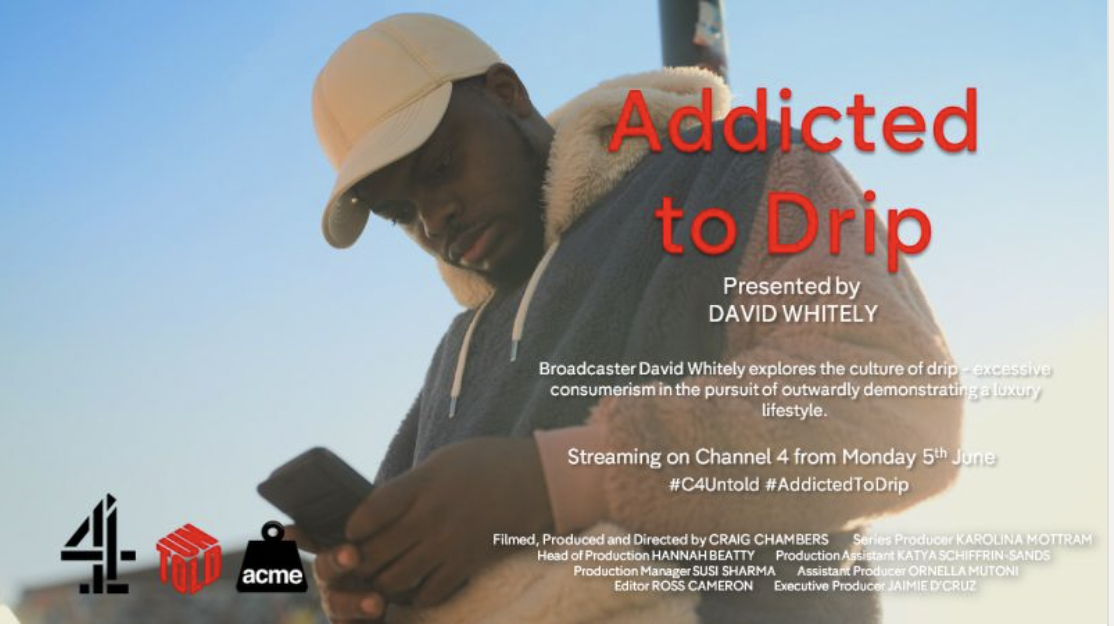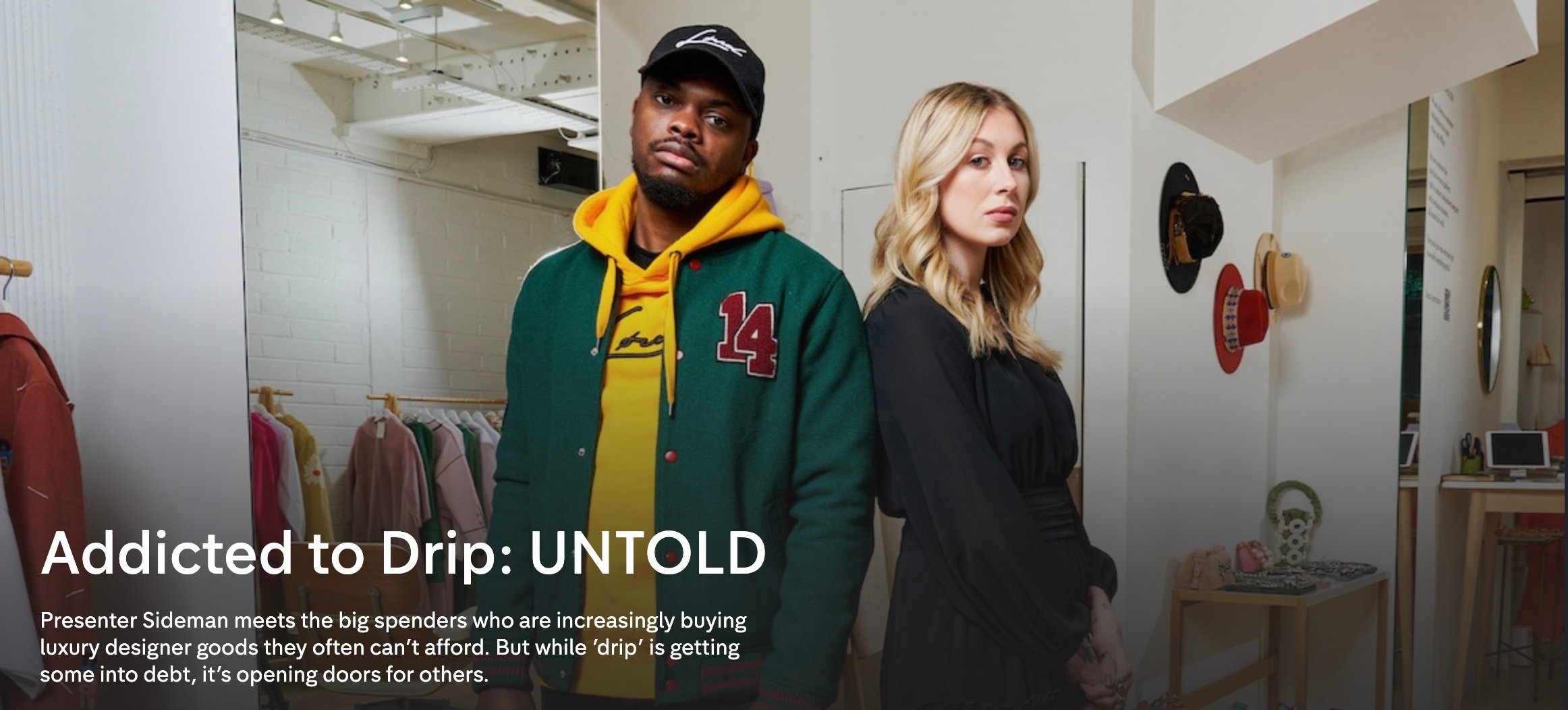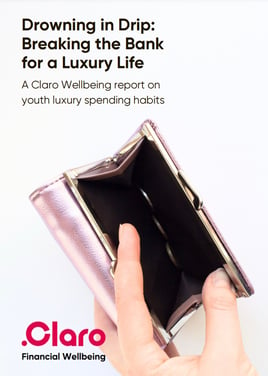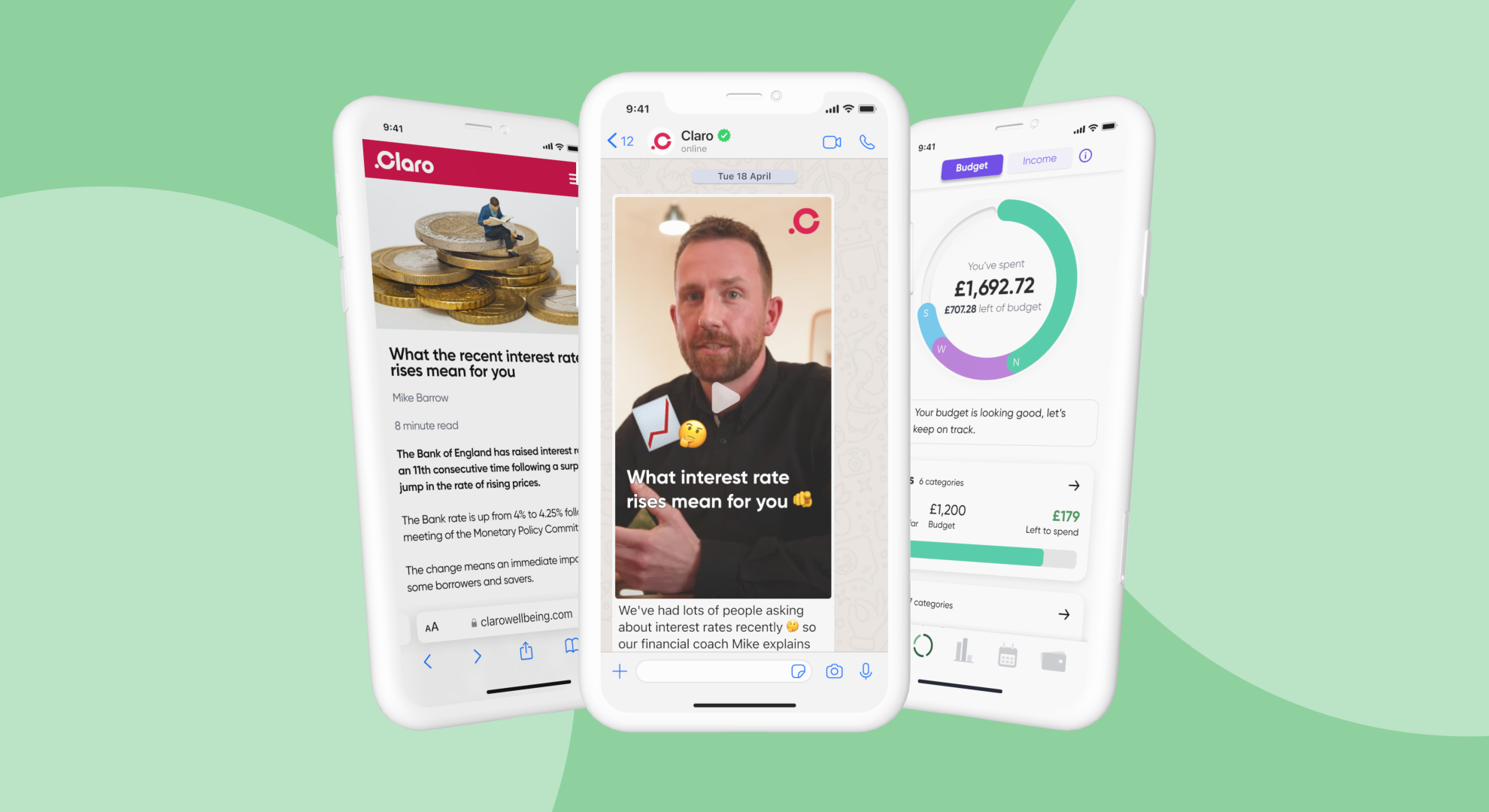6 min read
Should employers acknowledge Blue Monday?
Blue Monday (15 January) has a mixed reputation. But there’s still value in using the day to raise awareness of mental health and wellbeing...

Claro Wellbeing is thrilled to announce that we’ve featured in a documentary on Drip culture with Channel 4’s UNTOLD series - and it’s now available for you to watch.
The programme, Addicted to Drip, explores the luxury spending habits of 16-34 year-olds and includes shocking statistics from our research and compelling insight from our Head of Employee Wellbeing, Stacey Lowman.
 Stacey meets documentary presenter David Whitely to discuss Claro's research
Stacey meets documentary presenter David Whitely to discuss Claro's research
Drip culture - consumerism in pursuit of presenting a lavish lifestyle - comes from hip-hop and is a growing trend in the UK.
We discovered, in our report Drowning in Drip: Breaking the Bank for a Luxury Life, that two in three young people get into debt to project a luxury life online.
This demographic is particularly susceptible to the pressures of social media and how it can impact financial behaviour, self-esteem and mental health.
We found that more than one in three (35%) Millennials and Gen Zs have bought a luxury item, such as expensive trainers, designer clothes, or jewellery using Buy Now Pay Later, credit card, overdraft or loan, in an attempt to imitate a celebrity, influencer, or friend’s style.

As a result, 1 in 10 are in debt of more than £1,000 due to their spending on luxury items.
Some more of our key findings include:
Shocking, right?
Perhaps most troubling is the fact that this age group are also comparatively less financially resilient than older generations.
For example, they typically have lower salaries, are more likely to be in more insecure or part-time work and have higher living costs. Plus, they have less experience with managing money.
But this isn’t about blaming social media or shaming young people for their spending. Rather, we want the research to shine a light on the challenges we face with financial education in the UK.
 Our report reveals some surprising trends in young people's financial behaviour
Our report reveals some surprising trends in young people's financial behaviour
Too few people are taught about money at school or home growing up, and it’s leading a significant number of adults without the skills or confidence to manage their money effectively.
What’s more, the pool of financial products is growing (and getting more complicated) as is the number of self-styled financial gurus (who aren’t necessarily qualified, accurate or trustworthy).
We know there needs to be more done in schools to boost the nation’s financial literacy and Claro Wellbeing is working with employers to provide financial education to frontline workers, such as those in retail, construction and manufacturing.
We’re also hoping the Financial Conduct Authority’s new Consumer Duty rules for financial firms, that come into play by July 31, will force providers to step up and ensure their customers understand their products to ensure they are suitable.
Claro Wellbeing recently joined the Consumer Duty Alliance, an independent professional body supporting the personal finance sector to adopt and implement good Consumer Duty outcomes. As a member, Claro Wellbeing will share and develop good practices in financial services and help raise industry standards.
Claro Wellbeing has conducted extensive research into the financial literacy and wellbeing of the public in recent years, as well as exploring the impact that money worries have on things like mental health and workplace productivity. You can find all of our guides here.

6 min read
Blue Monday (15 January) has a mixed reputation. But there’s still value in using the day to raise awareness of mental health and wellbeing...

4 min read
Ever wished you had a money-whiz friend you could ask anything, as often as you like?

7 min read
Millions are being impacted by financial stress. Yet, until now, workers in frontline occupations have not been able to benefit from educational...